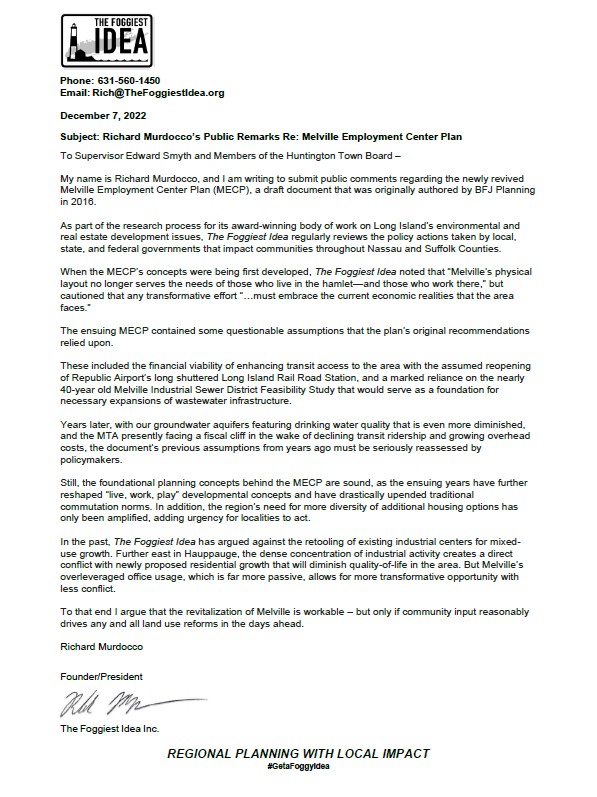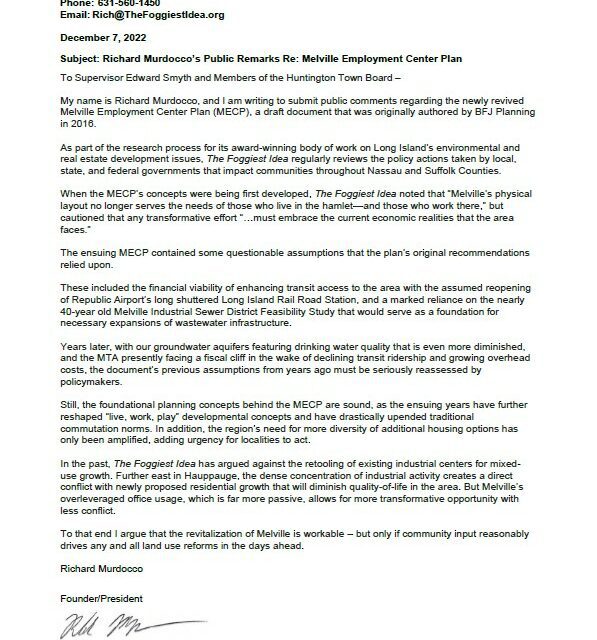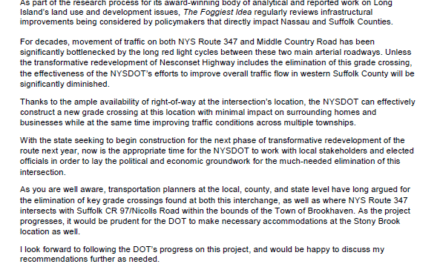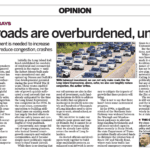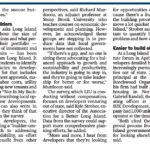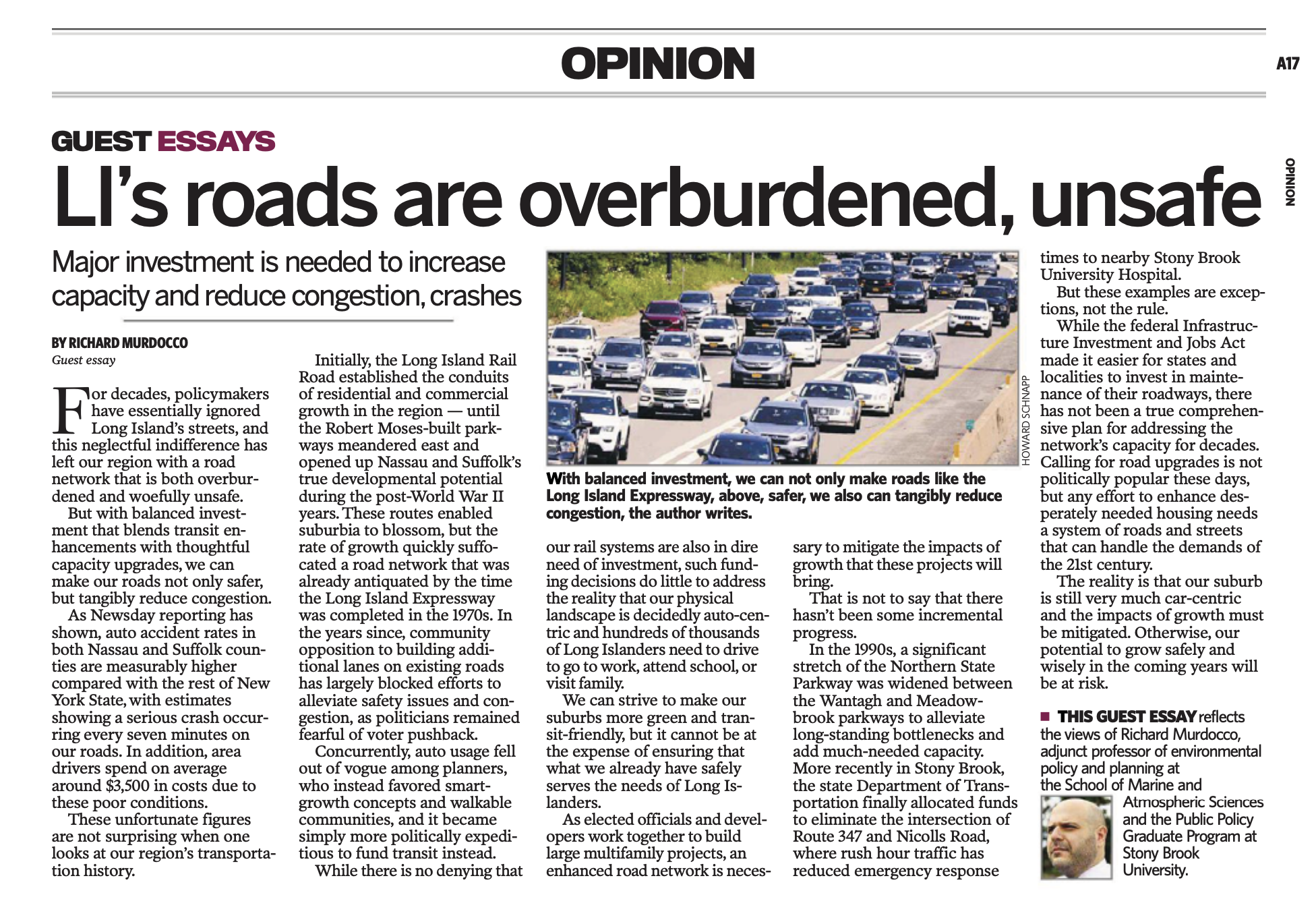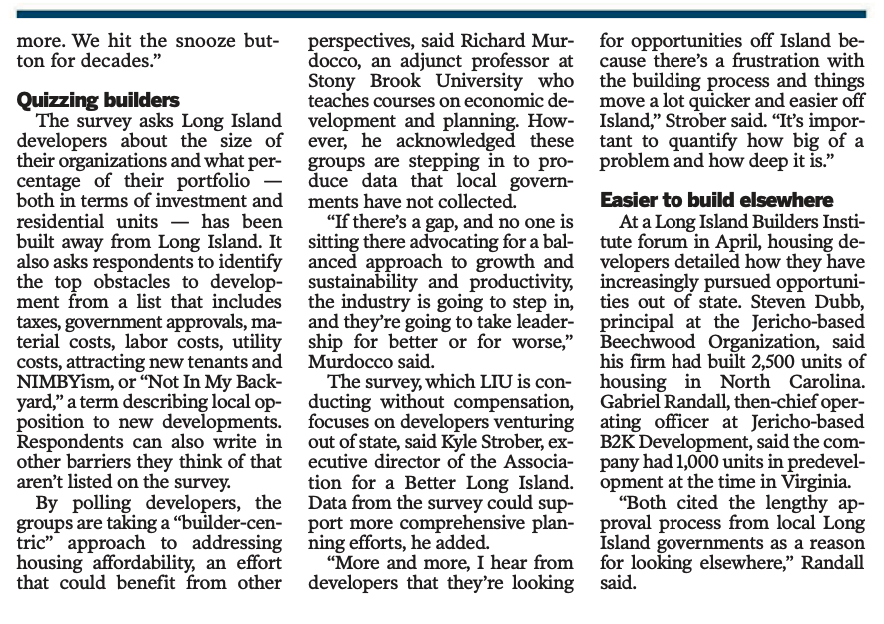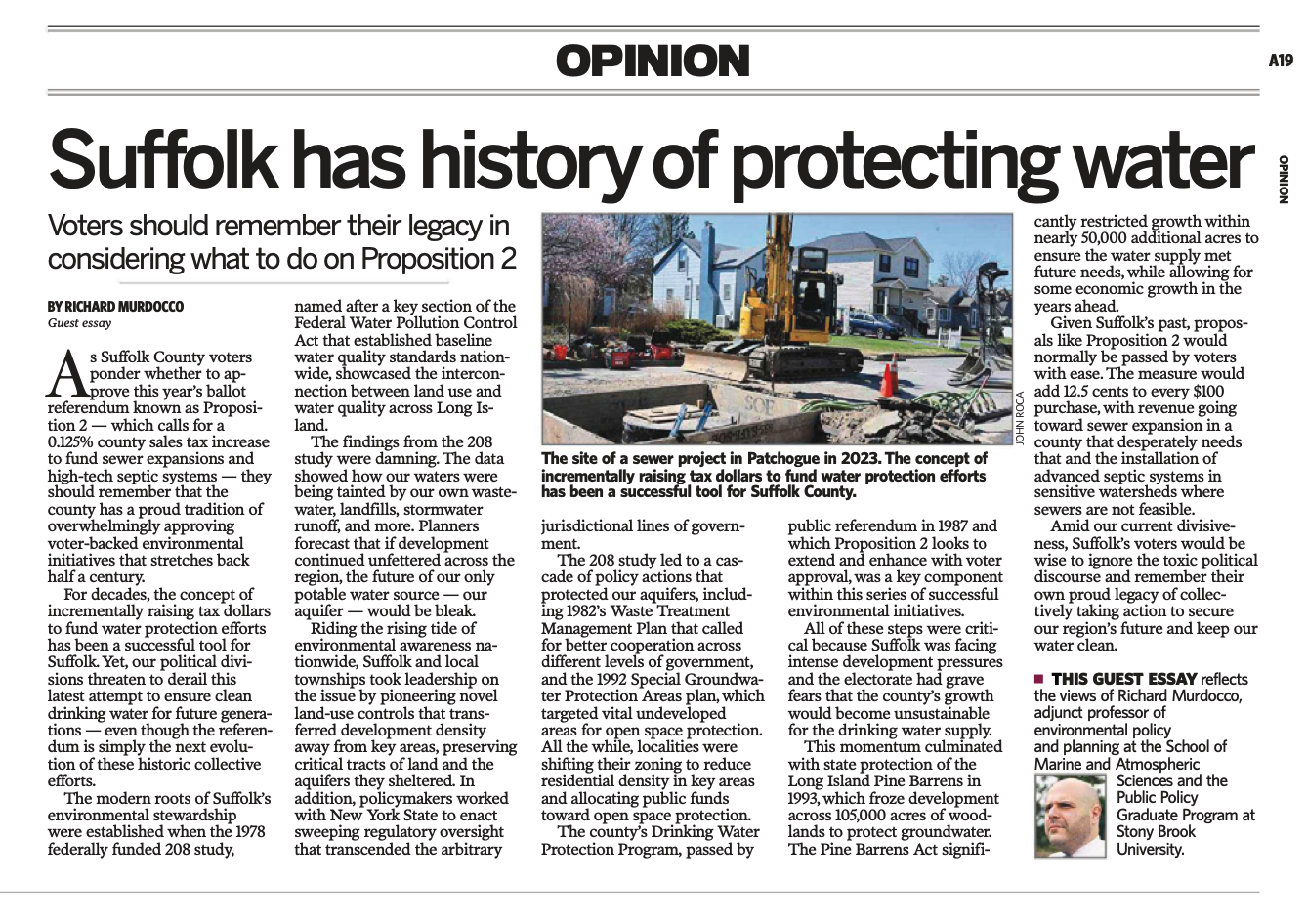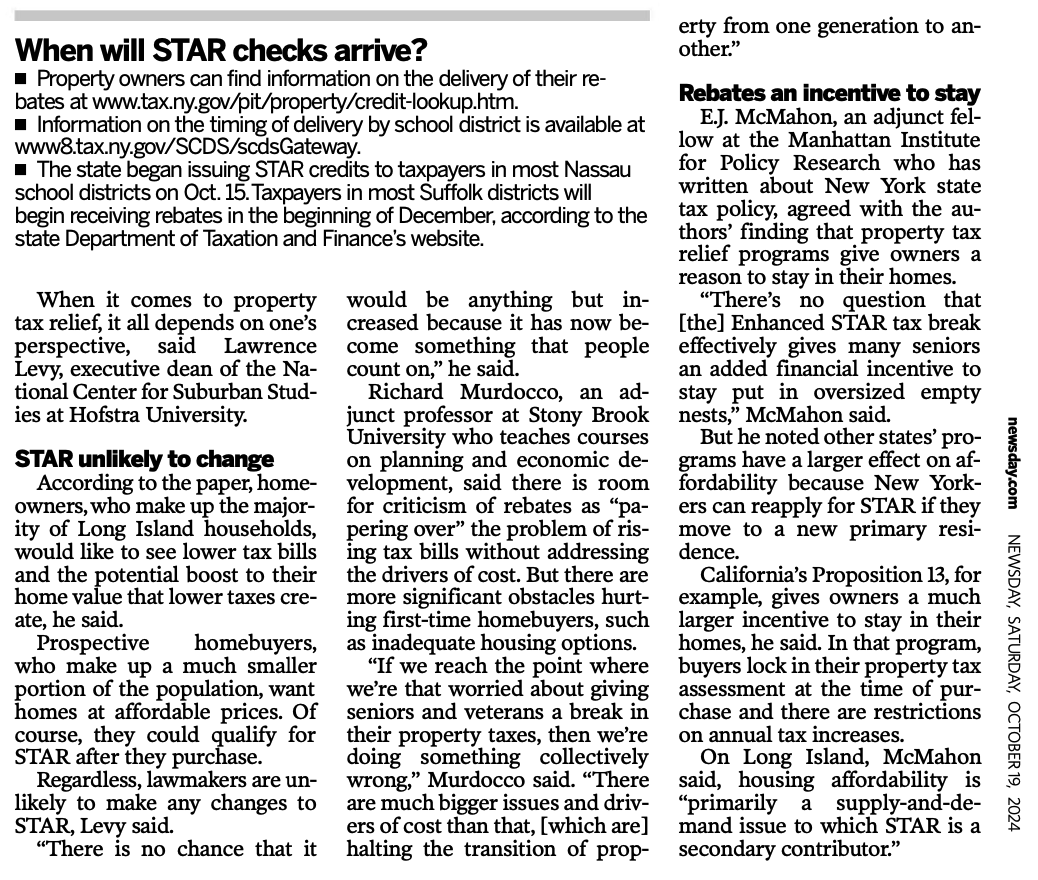The following remarks were delivered to elected officials and policymakers in the Town of Huntington on December 7th, 2022. Interested in supporting The Foggiest Idea’s award-winning reporting and analysis? Click here.
To Supervisor Edmund Smyth and Members of the Huntington Town Board –
My name is Richard Murdocco, and I am writing to submit public comments regarding the newly revived Melville Employment Center Plan (MECP), a draft document that was originally authored by BFJ Planning in 2016.
As part of the research process for its award-winning body of work on Long Island’s environmental and real estate development issues, The Foggiest Idea regularly reviews the policy actions taken by local, state, and federal governments that impact communities throughout Nassau and Suffolk Counties.
When the MECP’s concepts were being first developed, The Foggiest Idea noted that “Melville’s physical layout no longer serves the needs of those who live in the hamlet—and those who work there,” but cautioned that any transformative effort “…must embrace the current economic realities that the area faces.”
The ensuing MECP contained some questionable assumptions that the plan’s original recommendations relied upon.
These included the financial viability of enhancing transit access to the area with the assumed reopening of Republic Airport’s long shuttered Long Island Rail Road Station, and a marked reliance on the nearly 40-year old Melville Industrial Sewer District Feasibility Study that would serve as a foundation for necessary expansions of wastewater infrastructure.
Years later, with our groundwater aquifers featuring drinking water quality that is even more diminished, and the MTA presently facing a fiscal cliff in the wake of declining transit ridership and growing overhead costs, the document’s previous assumptions from years ago must be seriously reassessed by policymakers.
Still, the foundational planning concepts behind the MECP are sound, as the ensuing years have further reshaped “live, work, play” developmental concepts and have drastically upended traditional commutation norms. In addition, the region’s need for more diversity of additional housing options has only been amplified, adding urgency for localities to act.
In the past, The Foggiest Idea has argued against the retooling of existing industrial centers for mixed-use growth. Further east in Hauppauge, the dense concentration of industrial activity creates a direct conflict with newly proposed residential growth that will diminish quality-of-life in the area. But Melville’s overleveraged office usage, which is far more passive, allows for more transformative opportunity with less conflict.
To that end I argue that the revitalization of Melville is workable – but only if community input reasonably drives any and all land use reforms in the days ahead.
Richard Murdocco
Founder/President
The Foggiest Idea Inc.
